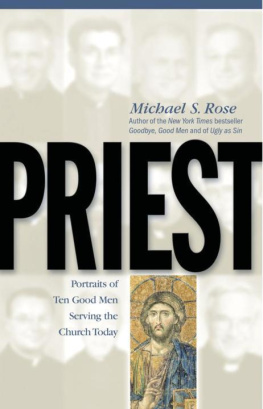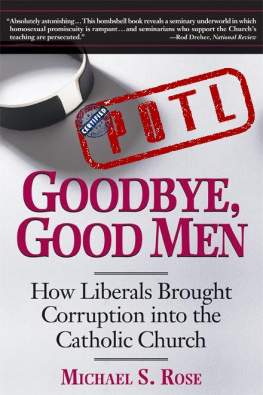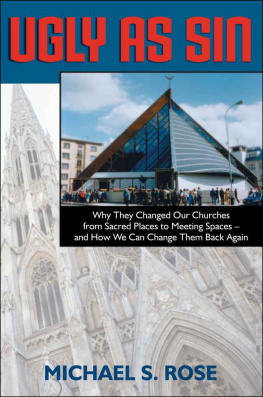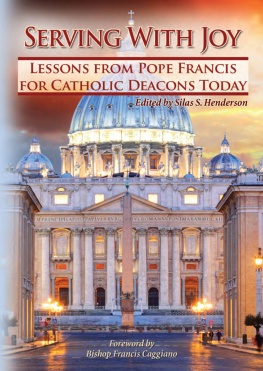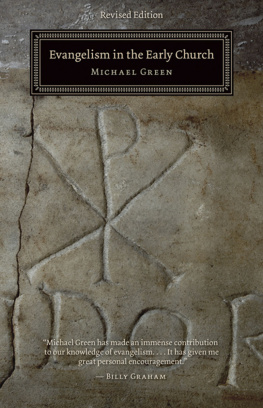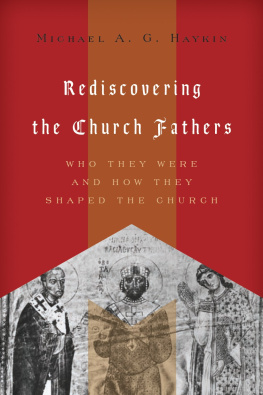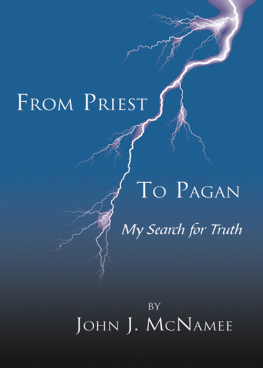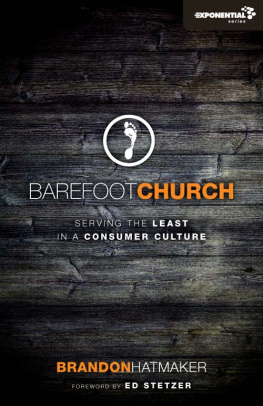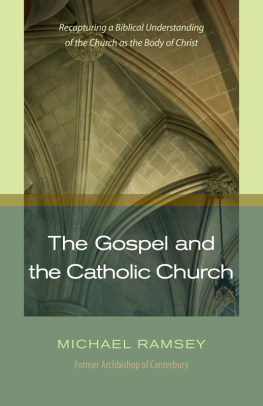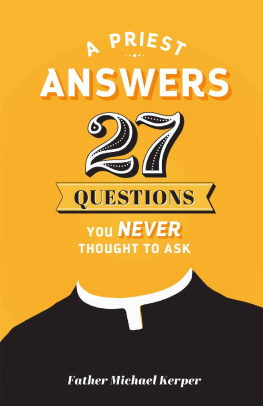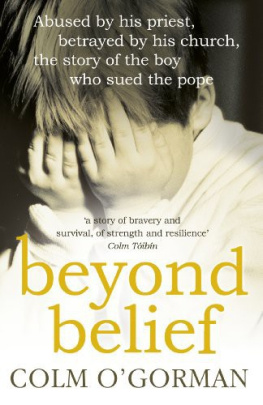


....... 3
............ 55
..... 71
.. 89
....... 109
......... 165
. 183
The Catholic priesthood has become one of the most misunderstood callings in modern times. What is a priest? What does a priest do? Why does the Church ordain priests to be set apart from the rest of us? Is the priesthood necessary or even desirable?
Too many Catholics today have difficulty answering these simple questions. In a time when the tabloid bonanza of sexual abuse by Catholic priests dominates the news, the priesthood has become an increasingly significant and controversial topic for people of every theological persuasion. In an age when so much discussion centers on how Catholics need to learn to live without priests, many Catholics have lost sight of why Christ instituted the sacred priesthood in the first place.
The priesthood has always had its detractors - today as much as ever. It has been reviled throughout history by anti-Church reformers such as the Calvinists in Northern Europe and the socalled Nativists in North America. Anticlerical forces such as the Spanish revolutionaries of the 1930s slaughtered priests by the dozens, publicly dismembering their charred bodies; the French revolutionaries of the eighteenth century chose to roll their ordained heads through the streets.
Amid all this hatred, it remains a profound mystery to the world that an institution such as the Catholic priesthood has endured for two millennia. In the words of Francois Mauriac, priests "no longer have any human advantage. Celibacy, solitude, hatred very often, derision, and, above all, the indifference of a world in which there seems to be no longer room for them - such is the portion they have chosen."
The priesthood has also had its share of defenders. Stalwart Catholics, understanding the holiness of the priesthood as instituted by Christ on Holy Thursday, have never ceased to come forward in defense of their legitimate pastors. Many well-meaning Catholics, however, especially in recent decades, have tended to sugarcoat their defenses, almost as if priests did not live in the same world as the rest of us; as if they were not subject to the same laws of nature. With the aid of denial and avoidance, or through sheer ignorance, these naive defenders have ultimately done little good for the priesthood.
It has taken a series of formidable sex scandals, unprecedented in modem times, to bring many of the well-meaning to their senses, to acknowledge the stark reality. The priesthood is more than worth defending. But it's worth defending for what it is and ought to be. We simply cannot dismiss all human problems in an individual by virtue of his ordination. The Church cannot afford to deny the occurrences of abuse and failure that have brought corruption into the Catholic priesthood.
Priest, as its title suggests, is a book about the priesthood - a book written neither from the perspective of an anti-Church reformer who wants fundamentally to change or eliminate the Catholic priesthood, nor from the perspective of one who seeks to sugarcoat the sacred institution by painting an image of priests who stand head and shoulders above the rest of society simply by dint of their ordination. This book is not a mere paean to the priesthood. It is a simple and forthright look at the priesthood at the beginning of the twenty-first century, through the eyes of priests who are devoted to Christ and His Church.
Although each priest featured in the chapters that follow has played his own unique role in today's Church, together they share a number of similarities. Each understands and accepts the teachings of the Catholic Church. Each understands and accepts the role of the priest in the Church and in society. Each loves his vocation as a priest and actively encourages and promotes other such vocations. Each faithfully serves the Church, doing what priests were ordained to do: offering the sacraments, preaching the gospel, teaching the Faith, and leading souls to Christ and eternal salvation. At the same time, each understands the many challenges that confront the Church today, and the many obstacles and temptations with which priests must contend. Not one expresses himself with the intent of minimizing the challenges or downplaying the many struggles. Each understands and acknowledges that this particular calling is not for the faint of heart.
In the words of one priest: "No wimps need apply."
All is not well in the priesthood today - but neither was it in apostolic times. After all, the twelve Apostles were the Church's first priests. Peter denied Christ three times; nine other apostles were cowards who dared not follow Jesus to Golgotha; and Judas, the first "bad priest," betrayed the innocent blood of his Lord. That leaves only John, "the apostle whom Jesus loved" (cf. John 20:2). Nevertheless, it is not the priesthood that is the problem - not today and not in apostolic times. The problem is more often than not a failure of young men to hear and faithfully answer their calling; a failure of seminaries and bishops to form and educate their future priests properly; a failure of the ordained to focus on the duties of their state in life; and a failure of the laity to offer the proper spiritual and moral support for their pastoral leaders.
A warning: Priest deals with some of the most controversial issues in the Church and in the priesthood today, not ignoring the hard realities that threaten the integrity and mission of the priesthood: the sexual abuse of children, homosexuality, the discipline of celibacy, the lack of support received from fellow priests and bishops, and the undermining of the teachings of the Church by certain priests, as well as the connection between dissent, personal failings, and sinful behavior. Nevertheless, I hope to cover these controversial aspects of the priestly ministry without scandalizing. In fact, I believe honest coverage of these issues will help promote future vocations and strengthen the priesthood by making it healthier and more effective in its mission to the Church and to the world.

